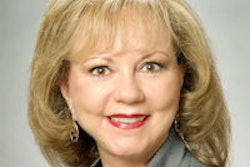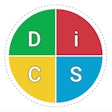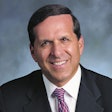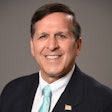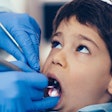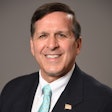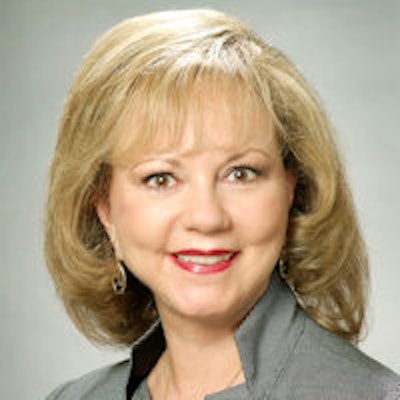
At first glance, your hygiene schedule looks jam-packed. You're booking patients three, even four weeks out, yet somehow there are days when you find your hygienist relaxing in the break room more than you find her working on patients in the operatory.
The sad fact is that hygiene production numbers are lower than they've ever been, and you have no idea why. Sure, there are days when your hygienist can barely keep up with the schedule, but those days are the exception, not the norm. You know your hygienist is good at her job, yet her production numbers are abysmal.
 Sally McKenzie, CEO of McKenzie Management.
Sally McKenzie, CEO of McKenzie Management.I hate to break it to you, but no matter how talented your hygienist is, if she doesn't have any patients in the chair, she can't produce, and that means you're losing money. The worst part? You're probably paying more than what's being produced. Your hygienist's salary shouldn't surpass 33% of production. Did I just hear a gasp? That's right. Doctor, if you're paying your hygienist more than that, you can bet practice revenues are going down, while your overhead costs are going up.
Ready to turn your hygiene department around? I've put together these tips to help you revive your hygiene department, grow your income, and finally become CEO of the successful, profitable dental practice you've always wanted.
Stop relying solely on preappointing
Do you have any idea what you're doing on a Tuesday six months from now at 10 a.m.? Your patients don't either. Scheduling patients six months out might give the illusion of a full hygiene schedule, but the reality is patients will cancel at the last minute or just not show up at all -- leaving you with holes to fill and, ultimately, costing you money and patients.
Don't believe me? Practices that preappoint only retain about 76% of their patients. Pretty pathetic, right? Well, it gets worse. These practices also average a loss of 50% more patients than practices that don't rely 100% on this type of scheduling technique. The reality is that if patients can't get in for an appointment because you're booked out for weeks, guess what? They're going to find a dentist who can treat them now, and that means they're not coming back for their next hygiene visit.
If you're not ready to completely break ties with preappointing, consider integrating a hybrid system. Only preappoint reliable patients who actually show up for their appointments, but don't offer it to patients who have a history of flaking out. Only schedule them when they're due. This will help reduce cancellations and no shows, leaving room in the schedule for new patients and recall patients, increasing your hygiene production numbers.
Hire a patient coordinator to manage the recall system
Many practices only turn to the recall system when they have an unexpected opening, frantically calling patients to stop what they're doing and come to the practice in the next hour. This method turns your day into chaos and causing undue stress for everyone involved.
Stop this nonsense and hire a patient coordinator who is responsible for reaching out to and scheduling a certain number of past-due hygiene patients every day. Give your patient coordinator, who should have a background in sales, specific recall-related goals, such as scheduling to ensure hygienists produce three times their daily wages. If you already have a patient coordinator, empower that person to take over the recall system, not just fill in holes in the schedule as they arise.
All too often, the recall system is set aside and forgotten. Once you make someone accountable for your recall system, your hygiene production numbers will go up, as will your revenue.
Implement a perio program
This is a huge opportunity for your practice. While most patients exhibit signs of periodontal disease, few hygiene departments offer interceptive periodontal therapy. Why? They're afraid patients will react negatively.
Remember, no matter how awkward it might be or how upset patients might get, it's the hygienist's responsibility to inform patients of the presence of periodontal disease and educate them about its risks.
While an interceptive periodontal program can be incorporated into your practice in several way, I recommend starting at the front. As patients are greeted at the front desk, use this opportunity to mention the program, and offer patients an educational brochure and questionnaire that focuses on the signs and symptoms of gum disease.
Through the questionnaire, you and your team will learn about any symptoms patients have experienced, opening the door for conversations chairside that help ensure patients receive the treatment they need, while also growing your hygiene production numbers.
A low-producing hygiene department can be crippling to a dental practice, but the good news is it's not too late to turn it around. Make the necessary changes, whether that's adding a patient coordinator, re-evaluating your hygienist's pay, or implementing a perio program, and you'll find your hygiene production numbers growing beyond what you even thought possible.
Sally McKenzie is CEO of McKenzie Management, which offers educational and management products available at www.mckenziemgmt.com. You can learn more about her one-day hygiene performance program here. Contact her directly at 877-777-6151 or at [email protected].
The comments and observations expressed herein do not necessarily reflect the opinions of DrBicuspid.com, nor should they be construed as an endorsement or admonishment of any particular idea, vendor, or organization.




